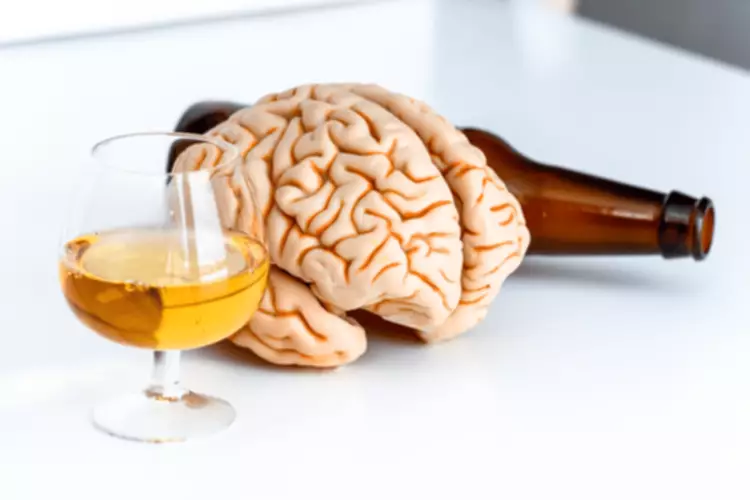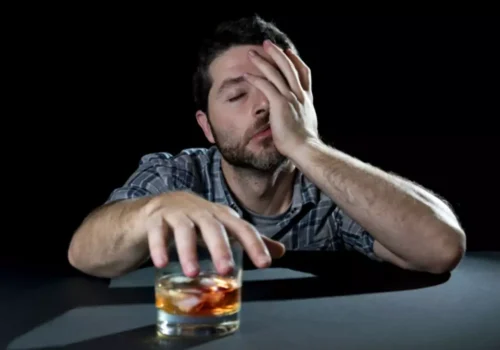
The effects of high-quality sleep will continue to build each day. Alcohol withdrawal symptoms generally begin within 12–24 hours after your last drink. They will initially be milder, with a headache, tremors and mild anxiety being the first symptoms. While mild at first, they will begin to intensify as withdrawal progresses. In extreme situations, you could become very agitated, see or feel things that aren’t there, or even have a seizure.

Top doctors in ,
Along with anxiety and irritability, you may also experience mood swings when you give up alcohol. It is potentially life-threatening, so it is essential to seek medical attention immediately if you experience such symptoms. A final way alcohol affects weight is by increasing an individual’s propensity towards more caloric foods. Long-term alcohol use can change your brain’s wiring in much more significant ways.
How does my mental health improve when I stop drinking alcohol?
- People with alcohol use disorder can’t stop drinking even when it causes problems, like emotional distress or physical harm to themselves or others.
- If you’re having difficulty sticking to your goal or just want some extra guidance, consider reaching out for professional support.
- “Alcohol is a monkey wrench in our homeostasis,” says Dr. Mosquera.
- Here are some science-backed perks of taking a break from alcohol.
- Your gut microbiome is a hotbed of bacteria that help keep your digestive system happy and healthy.
- While this depends on the amount of alcohol you have had over the years, your liver can see partial healing within two to three weeks, but this will depend on your health history.
It’s essential to create a support system to help you quit drinking alcohol successfully. Share your plans with your family and friends so they can support you throughout the journey. If you don’t have family or friends nearby, or if you need additional support, consider reaching out to a support group such as Alcoholics Anonymous or SMART Recovery. They will provide you with the necessary resources and guidance to help you achieve your goals. The rate at which the liver breaks down or metabolizes alcohol depends on several factors like your genes, age, and weight, how much alcohol you consumed, and what you’ve eaten.
Your Heart Gets Healthier
Alcohol is a depressant and has a sedative-like effect, which can help individuals fall asleep; however, an individual will likely experience poor-quality sleep. Alcohol affects sleep quality by interrupting the body’s REM cycle and interfering with respiration. As evidenced by these recent reviews, the harms of daily alcohol consumption may outweigh the potential benefits in the long run. But what effects can you expect to experience if you have a nightcap (or two) every day?
Serious Short-Term Symptoms
Another thing that will help your liver’s journey in recovery is good nutrition. There’s no miracle diet by any means, but the Mediterranean diet, for example, can help fill some of what happens when you stop drinking the nutritional gaps you may have due to alcohol use. If your liver has taken a hit from prolonged alcohol use, there are ways to give it — and the rest of your body — a break.
- Naltrexone is one type of medication that can help reduce alcohol cravings, making it easier for some people to stop drinking.
- Turner notes the importance of bringing along a trusted support person when attending events that involve alcohol.
- As you begin to notice those health benefits, you’ll likely feel more energized and inspired to keep up your progress.
- A healthcare provider will also run tests to rule out other medical conditions that have similar symptoms of alcohol withdrawal or occur alongside withdrawal.
- “For patients who are left with cirrhosis after severe injury to the liver from alcohol, even one drink of alcohol is toxic to the liver,” cautions Dr. Lindenmeyer.
- If you’re more of a moderate to occasional drinker, you may find the hardest part of stopping drinking to be the social pressures.
- If your pancreas and liver don’t function properly due to pancreatitis or liver disease, you could experience low blood sugar, or hypoglycemia.
- Cutting back or cutting out alcohol is an amazing choice you can make for your health and lifestyle.
- You may not need to completely reinvent your life to quit drinking, but making a few changes in your surroundings to help avoid alcohol triggers can make a big difference.
- When you stop drinking, your skin gets more elastic and the redness and discoloration on your face will slowly fade.
- Talk to a doctor about your personal history and what’s right for you.
Keep in mind the reasons you chose to cut back on or quit alcohol. It’s common to have a difficult time when making big changes, but good self-care practices can help you manage overwhelming feelings and take care of your mind and body. But maybe you’re unsure about quitting completely and don’t want to hold yourself to that goal. Knowing why you drink is essential, says Cyndi Turner, LCSW, LSATP, MAC, a Virginia therapist specializing in addiction treatment and alcohol moderation.

That can lead to pancreatitis, which is inflammation of the pancreas. That allows excess calories from the foods you eat to sit around, leading to weight gain. If alcohol continues to accumulate in your system, it can destroy cells and, eventually, damage your organs.
You May Have Trouble Sleeping
